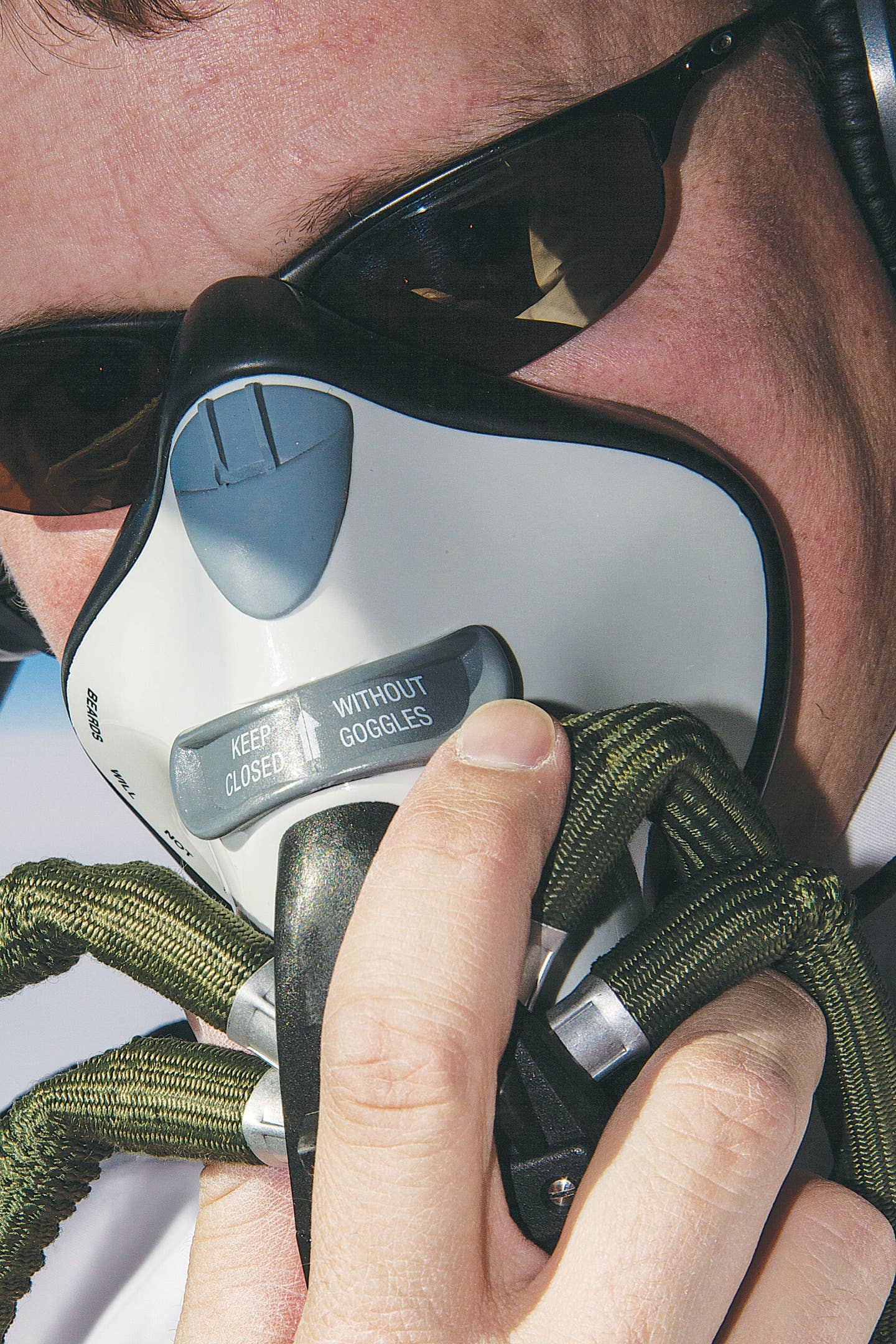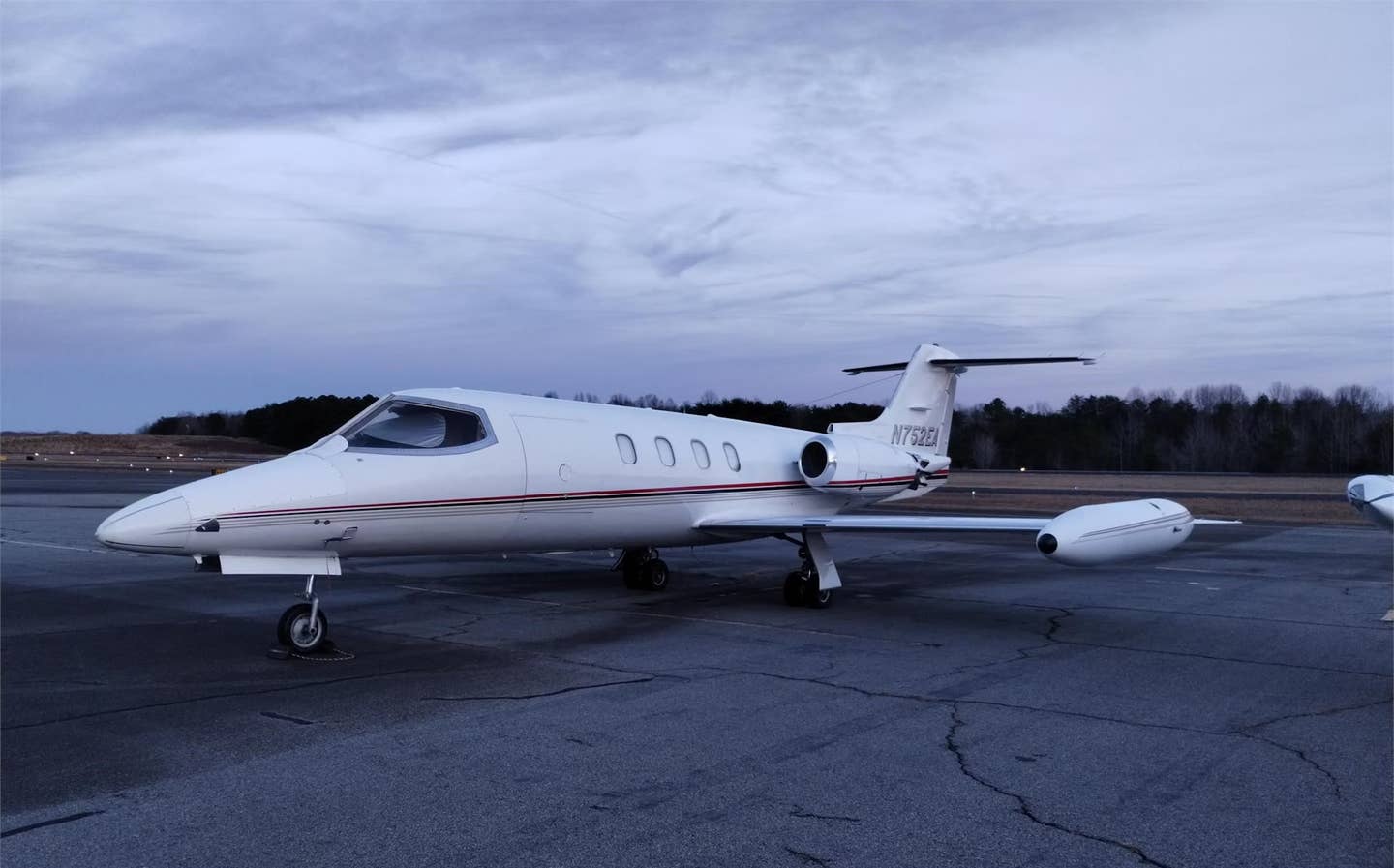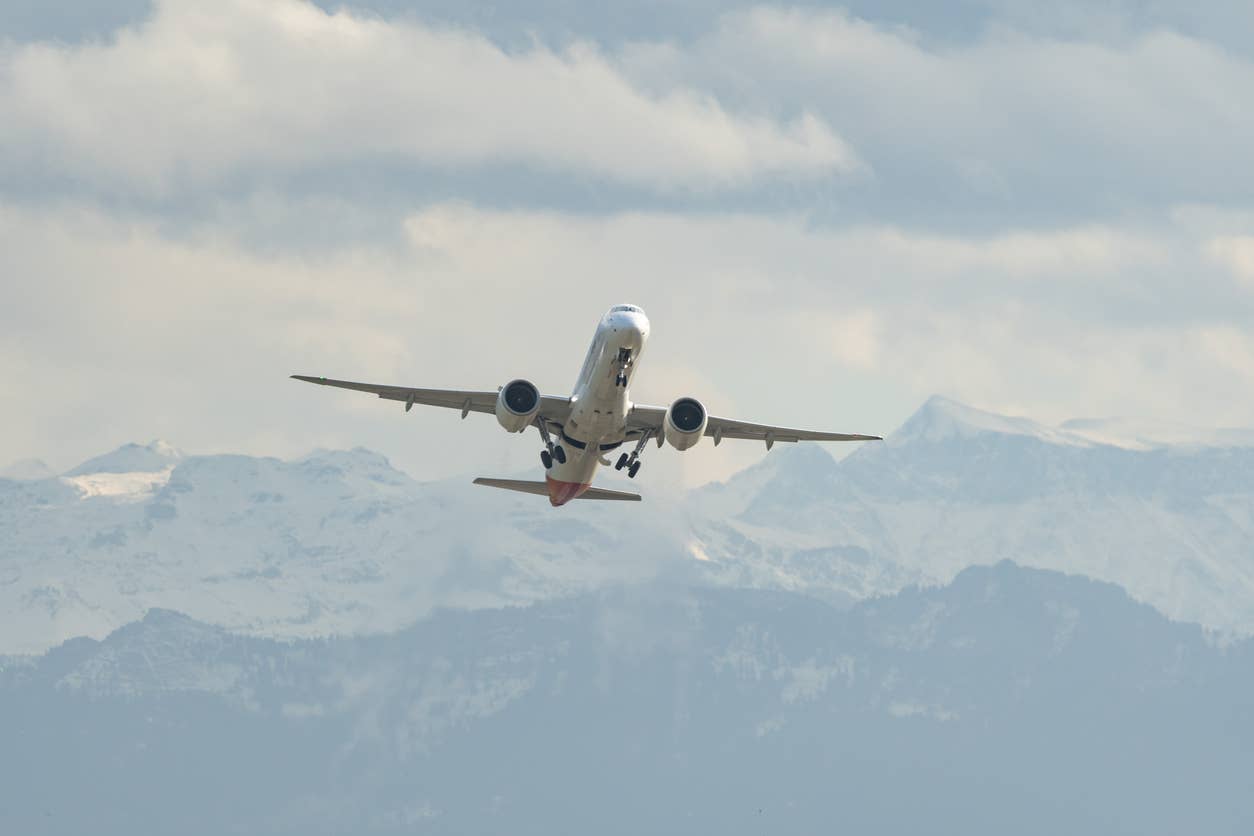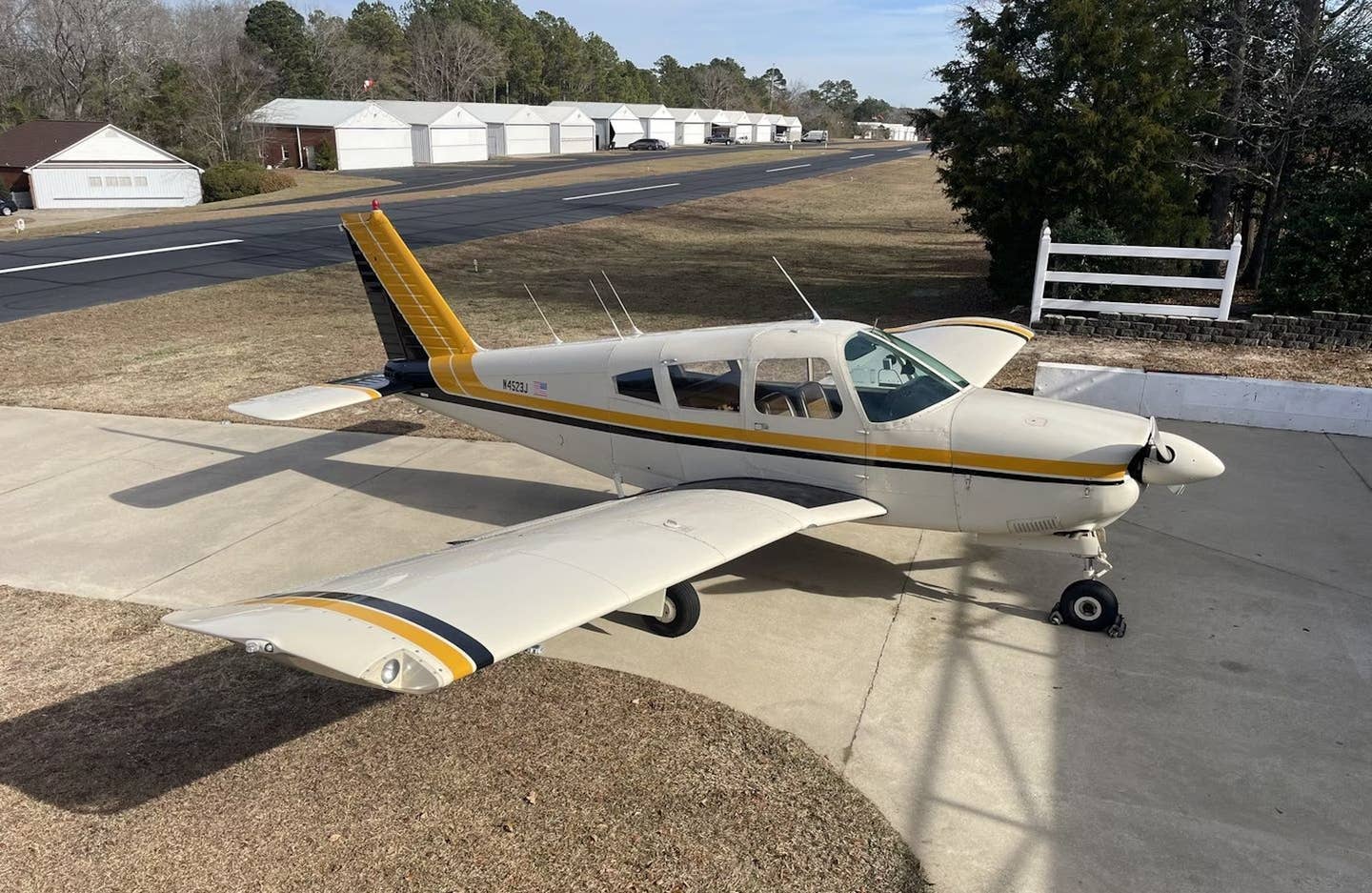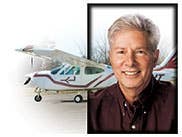
Occasionally, people insisting "Not in my back yard" have good reason. For example, the other day Miss Biscuit, one of my horses, got out of the pasture and dug divots in a neighbor's soft, water-soaked backyard. I repaired the lawn. He had a point.
Although many of the NIMBYites' claims are knee-jerk reactions, their potential is to wreak havoc on liberties we've complacently taken for granted. Accounts of airports being threatened by their neighbors have become clichés. Even Columbia County Airport, my local airport, has been the object of anti-airport neighbors that were aroused by the announcement of a runway extension. The group that called itself RANC (Reduce Airport Noise Committee) was organized by a homeowner who had bought a house at the corner of the landing pattern and didn't like having airplanes overhead. The group hired a lawyer, generated newspaper articles and held meetings designed to enlist other residents who hadn't been aware there was a noise problem. They wanted to stop the runway extension, concerned it would mean bigger airplanes generating more noise; they wanted to ban touch-and-goes and night operations; and the organizer wanted to change the pattern so there would be a right-hand pattern that would keep airplanes from turning over his house.
I attended one of the meetings and, after sitting in silence, finally felt compelled to speak up when the distortions and misconceptions about airplane operations became too bizarre. After admitting that I was an airplane owner I pointed out that there was no way Federal Express would use our rural airport as a hub, or the airlines use it for practice approaches with their 747s. Interestingly, when the meeting broke up the organizer approached me and asked if I would be willing to occasionally fly him down to New York City. Talk about wanting his cake and eating it, too.
When an anti-airport story appeared in our local paper I wrote a letter to the editor announcing the formation of FILE (Fliers In Love with the Environment) and suggested that RANC and FILE should work together to ensure that everyone's concerns were addressed. We promised to fly more neighborly and announced that noise abatement procedures had been put in place. Once the runway was extended and none of the dire predictions occurred, and most significantly, when the original organizer moved away, the airport antagonists faded away.
Those against airports aren't all anti-noise. They can find a number of reasons for wanting an airport closed. I remember residents at an NATA-sponsored focus group in Readington, New Jersey, were concerned about overcrowding of their roads because, as a "reliever" airport, airliners from Newark would be landing at nearby Solberg-Hunterdon Airport. One participant said, "Imagine, if a business jet lands at the airport and the CEO gets out, looks around and says, 'This would be a good place to build a facility.' We certainly don't want that." I kid you not.
Recently the attacks on another New Jersey airport have become relentless. Ironically, the problems Dan Walker, owner of Somerset Airport (SMQ) that's been operated by his family since 1946, is facing are a result of the beautiful area in which the airport is located. "Normally airports are located in marshlands or places no one wants. When the land becomes valuable, that's a big problem." And he has big-expensive-legal problems.
According to Walker, he's been trying for two years to have the NorthStar Medevac Sikorsky S-76 helicopter, operated by the New Jersey Board of Health in cooperation with the State Police, permanently housed at the airport.
Since 1990, the helicopter service, staffed by EMS technicians from the University of Medicine and Dentistry of New Jersey (UMDNJ), was based at a heliport on the roof of the University Hospital in Newark, New Jersey.
But the hospital wanted to improve access time. From the Newark location, the helicopter could rarely service the western part of the state. (A second S-76, SouthStar Medevac, is based in southern New Jersey to service residents in that part of the state.) "After a brief study to locate the best location," Walker related, "it was decided that Somerset, in the center of the service area, was the perfect location in order to service all of the northern part of the state equally." Somerset, at the intersection of three major highways (I-78, I-287 and US 22) that account for many of North Jersey's automobile accidents, offers a central location with fuel, maintenance and weather reporting services on the field. An ideal base. "And in fact, that's proved to be the case," Walker reported.
In February 2005 the NorthStar Medevac helicopter relocated to Somerset and operated out of two double-wide trailers and a hangar built for another customer who, Walker said, graciously set aside his own requirements so the unit could have use of the hangar.
To house the unit in two double-wide trailers, Walker said he needed to get a special permit from the township. "I went to one of the monthly meetings, told them what we wanted to do, and the vote was unanimous to allow us use of the trailer and to have the medevac unit based at the airport on a permanent basis." It was too easy. At the next meeting of the commissioners a month later, following pressure from an individual who objected to the permit, the commissioners rescinded the special use permit. "The trailers were already in place, phone lines were in and everything was ready for them to start operations. When the permit was rescinded we went to court and applied for a stay of the township's effort to rescind the permit. The judge agreed with us and the township was prohibited from acting against us."
The request to the commissioners to base the single S-76 medevac helicopter at the airport has created a multi-headed Hydra; every time one objection-and subsequent lawsuit-is lopped off, another sprouts. It seems the main objection was that by basing the helicopter at Somerset Airport, the horse country and rural ambiance of the township with its stately mansions has been ruined by noise and pollution.
I can't help thinking how quickly someone's attitude will change if a medical emergency requires a helicopter evacuation. Talk about cutting off your nose to spite your face.
Among suits filed by individuals, a handful of lawsuits have been filed on behalf of the Bedminster, Bridgewater, Branchburg Concerned Citizens Coalition, BBBCCC, a tri-town residents group that was organized to stop the medevac operation.
One of the suits, Walker said, was based on the New Jersey Air Safety Act that was passed in 1983. "The act was designed to establish certain height and safety areas around active runways. Sometime in 1995 or 1996, the township finally introduced and passed an ordinance with some of the provisions of the Air Safety Act. But in passing the ordinance, they took the definition of an airport verbatim except that they added 'fixed-wing aircraft.' The state's definition contains no mention of types of aircraft and defines an airport as 'an area of land or water set aside for the takeoff and landing of aircraft.' It goes even further and says something like, 'anything that flies or could be invented in the future that flies.' " According to Walker, any local ordinance is overruled by a state law and the lawsuit was defended on that basis. "A judge agreed and we were able to get the special use permit again for the trailers, but the permit was temporary and expired in February 2006."
But that didn't stop some of the opponents. Individuals came forward and sued to again have the special permit rescinded. That effort ended when the special permit ran out in February.
Walker removed the trailers. The medevac unit continued to use the hangar adjacent to Walker's own office. "With the trailers gone they had the hangar, but no phones and other support they needed, so I accommodated them in our offices where they were able to set up their computers and phones." But the lawsuits kept coming. There were suits that argued that based on a town ordinance helicopters aren't allowed to land or takeoff or be based at the airport. "That's ridiculous," Walker said. "We are licensed by the State of New Jersey and able to accommodate any and all aircraft that meet the performance capabilities to operate from a 2,800-foot runway," he insisted. Another suit involves Walker's need to improve the facility. "We needed to build a septic system for our hangar to accommodate the medevac unit on a more permanent basis. As soon as I got approval from the Board of Health, the opponents sued to overturn the approval. They also sued us and the medevac unit because they say the unit's charter requires the helicopter to be hospital based and thus the operation is in violation of the charter of the UMDNJ medevac unit."
The objections are confusing. "I thought having the medevac unit based here was a win-win situation," Walker said. "And it's proved to be, at least for people who need the service. The response time to get to an accident or patient has been reduced by a minimum of 70 percent."
What's the real concern of the opponents? "Of course they come up with noise," Walker said. "But we've had helicopters based here off and on from our inception in 1946. Prudential Insurance started its helicopter service with us operating a Bell 206; the State Police began their operations here with three Enstroms; and Purolator started with a 206 and then a Gazelle and then a Dauphin. But well before the medevac unit operated here, a number of companies based in the area, many with S-76s, have been coming here routinely. Bedminster Township has no less than 14 heliports or helistops on estates or farms." Interestingly, one of the chief objectors to the medevac unit is Steve Forbes, ex-presidential candidate and publisher of Forbes magazine. "Forbes' father was very 'friendly' to us, and my father, an AI, licensed his first balloons. But it seems his son's objective is to oppose any improvements we want to make. It's surprising because he has a heliport in his backyard and the Forbes helicopter lands there."
At one point, Walker had seven lawsuits pending. Two have been decided and he's now working with the remaining five. "Every time I go to the board there are seven attorneys representing individuals or municipalities arrayed against my two," he said.
It's hard to know how this will all come out. Walker isn't optimistic. "Although I feel we're totally within current laws to operate the airport as we have for the past 60 years, I'm concerned that the opponents are going to keep suing us every chance they get. I'm not that big an operator that I have the wherewithal to fight all those suits. Though I'm well within the law, they're going to drain me with all these frivolous suits until I run out of money." An effort is underway to raise money to defend the airport. "We've formed the Somerset Legal Defense Fund and have gotten a big response from people using the airport, but other pilots have to recognize it's not just a local issue. If they're allowed to prevail by running me out of money, then every other airport in the country could be pressured in a like manner. The court action here could set a precedent that airport opponents around the country can draw on," he said. "We just want to be an airport," Walker added sadly.
To contribute to the Somerset Legal Defense Fund, write to: Somerset Air Service, P.O. Box 1007, Bedminster, NJ 07921.

Subscribe to Our Newsletter
Get the latest FLYING stories delivered directly to your inbox

